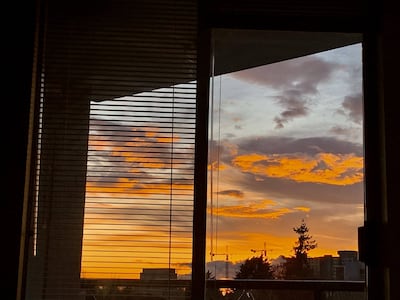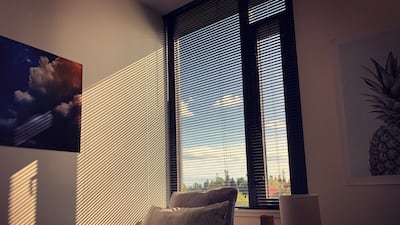It is called the empty nest syndrome. But, really, it ought to be called the emptiness syndrome. That is what parents feel when their children leave home. Utterly empty.
When my daughter left for university in August 2019, my days were like that. Their structure dissolved. That was the first thing that happened. When the person who is at the heart of everything you did for 18 years straight is no longer close by, when the person who dictated every waking moment (the school run, homework, outings, weekends) is absent, how can your days retain any semblance of structure?
Then there is the business of living in different time zones. I live in Delhi. My daughter studies at the University of British Columbia in Vancouver. In summer, the time difference is twelve-and-a-half hours; in winter, it is thirteen-and-a-half. I am asleep during her waking hours, and she, during mine. So we can’t call each other on a whim after suddenly coming across something to do with the passions we share (books, sport, films).
Every day is choreographed to the dance of the time difference. Our days are bookended by video calls, her face on the screen bringing us virtually closer but reinforcing, at the same time, how far apart we are physically. Sometimes, during the calls, I forget to tell her something I had meant to during the day. Those things vanish, bits of our daily lives we would like each other to know about are left unsaid, tugged away in the ebb and flow of the following days.
The trouble with living on two sides of the world is that neither of us can make a sudden, unplanned visit. Visiting during short breaks within the term are out. We knew all this before she left. But my wife and I had our hearts set on her coming home during the long summer holidays. The pandemic put paid to that. There were no international flights either in the summer of 2020 or last year.
Still, we try and make the best of it. If the timing is right (yes, there it is again — the time and the timing), we watch football together. She in her room in Vancouver with a view of clear skies and the mountains, me in my Delhi living room, a patch of inky, night sky visible through the window. But her spot on the sofa remains vacant.

There is a fair amount of writing on how to deal with the empty nest syndrome. When I knew my time was near, I read Celia Dodd’s The Empty Nest: How to Survive and Stay Close to Your Adult Child. Dodd acknowledges how wrenching the experience can be, especially for fathers, and offers an optimistic view of how to embrace this new life.
I saw many of my fellow parents doing that. They partied a lot. (I am a home-is-my-castle sort of bloke, so there was never any question of doing that.) Some, freed from the tyranny of the school calendar, travelled more. My wife and I did, too. But it was never quite the same without our daughter. We are able to spend more quality time with each other. That has helped. As has enhanced amounts of reading, and watching films and TV series.
Just before my daughter left, I saw a huge billboard that had come up on a South Delhi flyover. “Big changes are coming,” the billboard said (it turned out to be an advertisement for a new mall). I would look at the billboard and nod to myself: yes, big changes are coming. I tried to imagine what it would be like, the altered circumstances of my life. I thought a lot about it. But I was never quite able to imagine what it really would be like. Because nothing, absolutely nothing, prepares you for the reality.
When the time came, it was visceral. After she left, I would wander into her room sometimes. But I found it disturbing. Her absence seemed amplified by the things she had left behind: a pair of house slippers in front of the wardrobe, the shelves of books, the empty study table. Even the silence had a forlorn quality.
You will get used to it, people told me. More than three years after my daughter left home, I have not got used to it. Floating between sleep and wakefulness, I still have days when I feel certain she is asleep in her room down the hall. I have had to construct a new reality. I am still learning to inhabit it.
A lot of parents across the world go through this. In that, I know I am not alone. The irony is you spend 18 years of your life working towards the very moment that will leave you gutted.
In this regard, I always think of Arundhati Roy’s dedication in The God of Small Things. She dedicates the novel to her mother, “who loved me enough to let me go”. It is what, as parents, we teach ourselves to do: to love them enough to let them go.
I find it delightful to see my daughter forging her new life, being happy, making friends. I feel an acute pleasure and pride in seeing her life progress along new avenues.
The thing is, my daily life is still the same. Only, it has in it a daughter-shaped hole.
A leading Indian journalist, Soumya Bhattacharya is the author of six books of fiction, non-fiction and memoir. Among them is 'Dad’s the Word: The Perils and Pleasures of Fatherhood'

